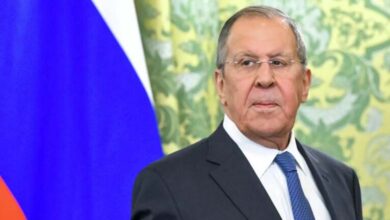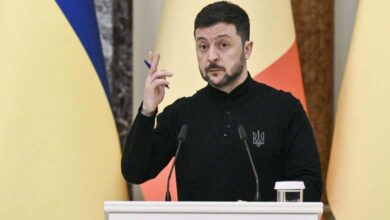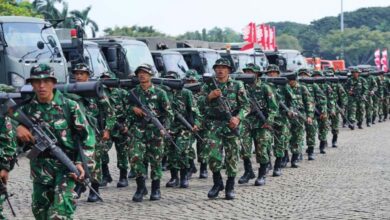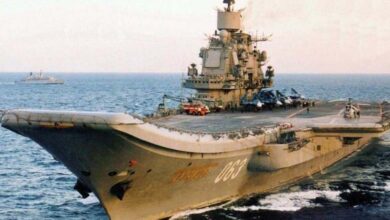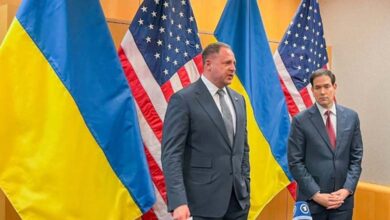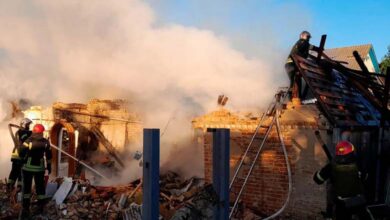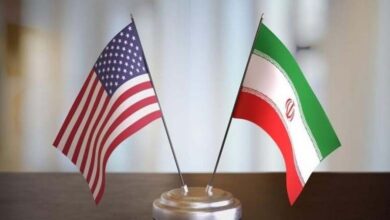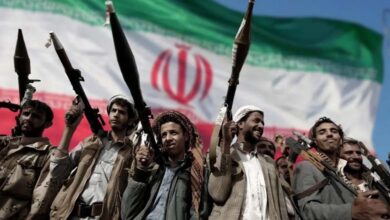A step that could turn Lebanon upside down… Will “UNIFIL” leave?
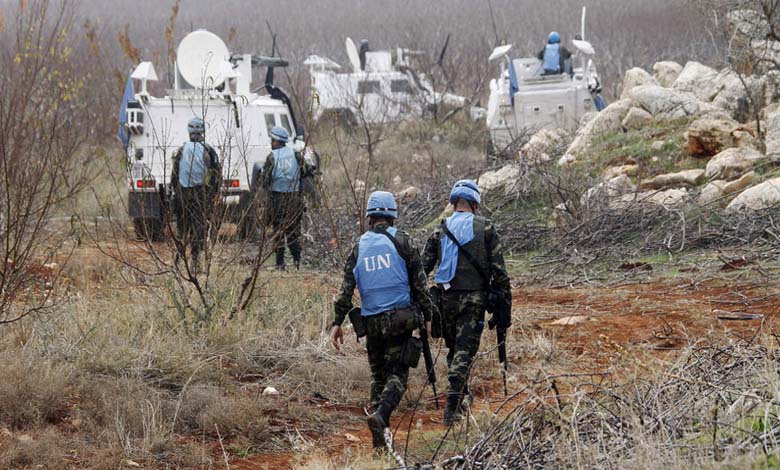
A decision that “UNIFIL” may be forced to take could upset Lebanon, as this force regulates security in the south of the country and at its border with Israel.
In the worst-case scenario, the United Nations Security Council might have to withdraw the United Nations Interim Force in Lebanon, known as “UNIFIL,” due to repeated assaults on it by Israel.
This option remains possible in light of the ongoing escalation and the involvement of the UN mission in the tensions of Tel Aviv in southern Lebanon, at a time when European anger seems powerless to “protect” this force, which is contributed to by many countries from the old continent.
Yesterday, Friday, the Israeli army announced that it had fired in the direction of a “threat” near a site of the UN Interim Force in southern Lebanon, in the context of an “incident” that injured two UNIFIL personnel.
On the same day, UNIFIL confirmed that two of its members from the Sri Lankan battalion were injured in two explosions near a border observation point, marking the second incident in two days involving UN forces, after two other members were injured on Thursday, prompting international condemnation.
Questions and Scenarios
The repeated Israeli assaults against UNIFIL raise many questions, particularly about the possibility of a withdrawal and the legal consequences that might ensue for the entity targeting international forces.
Who is the party authorized to act in this case? Is it possible for the United Nations to withdraw UNIFIL without a decision from the Security Council, and if so, when could such a decision be taken?
International law instructor Mohammed Mahmoud Mehran emphasizes that there are several scenarios regarding the functioning of UNIFIL troops in Lebanon in light of recent developments and repeated assaults.
Mehran states that “the forces could continue to fulfill their mission with strengthened protective measures, or their mandate could be adjusted to fit the current situation. In the worst-case scenario, a withdrawal could be considered.”
He explains that “the decision to withdraw the peacekeeping force rests solely with the United Nations Security Council, as the only competent authority to make such a decision, since it is the body that created the mission and defined its mandate.”
Regarding when a withdrawal decision might be taken, the expert notes that it is considered when the Security Council deems that the mission can no longer achieve its objectives or that the safety of its members is severely compromised.
Mehran also emphasizes that “the withdrawal of forces does not automatically mean the end of the mandate that led to their deployment, which remains in effect unless the Security Council expressly decides to annul it.”
As for the possibility of withdrawing forces without a Security Council decision, the international law instructor clarifies that theoretically, the UN Secretary-General can, in case of extreme emergency, make a temporary evacuation decision for security reasons, but this measure is temporary and requires subsequent approval from the Security Council.
Serious Consequences
According to the expert, serious legal consequences weigh on the entity targeting international forces, adding that “targeting peacekeeping forces constitutes a war crime under the Rome Statute of the International Criminal Court.”
He also emphasizes that this could lead to international sanctions against the responsible state.
Mehran insists on the importance of maintaining UNIFIL in Lebanon, given the necessity to preserve stability in the south, which requires supporting this mission and ensuring its ability to carry out its tasks in a safe environment.
International law instructor in Paris, Dr. Majid Boudin, shares the same view as Mehran, stating that the entity targeting UN peacekeeping forces in southern Lebanon – namely Israel – must bear the legal consequences of its actions.
Boudin specifies that this action is classified as a “violation of international humanitarian law,” as peacekeeping forces do not participate in an armed conflict but are present to maintain peace and separate the conflicting parties.
He adds: “Thus, attacks against them constitute an attack against the entire peace process as well as an attack against the UN and the Security Council and its decisions. Therefore, this action has many heavy consequences.”
For Boudin, “the assaults against UNIFIL forces have led many countries, notably France, Spain, and Italy, to warn and call for a ban on supplying arms to Israel, used in Gaza and Lebanon.”
He emphasizes that this mainly aims to protect civilians, infrastructure, and UN security forces.
Like his predecessors, the international law instructor confirms that the decision to withdraw forces from Lebanon and maintain them lies solely with the Security Council and that this decision must be made unanimously without using the veto of a permanent member state.
He excludes the possibility of this scenario “because if UN forces were withdrawn, it would open the way for Israel to enter Lebanon without any resistance.”
He specifies that “this possibility is not feasible, neither currently nor in the short term.”
Preventing the Blockade
For his part, the professor of international law at the University of Jerusalem, Dr. Amjad Shehab, asserts that since the establishment and mission of the “UNIFIL” force in 1978, it is the Security Council that votes each year to renew its mandate.
Shehab explains that “the mission has many functions on both the land and maritime fronts to prevent Israel from imposing a blockade on Lebanon.”
He also notes that “in the midst of the events of 2006, during the confrontation between Hezbollah and Israel, the Security Council decided to strengthen the general mandate to link the issue of UNIFIL’s withdrawal to the Council, whether with its five permanent members or the ten non-permanent members.”
“This is done by a vote of two-thirds majority or more, provided that none of the permanent member states use their veto right,” according to the expert, who emphasizes that the fact that the mission is endangered or bombed could only compel it to transfer its offices to the city of Tyre pending a calming down and return to border monitoring after a political agreement on the application of resolution 1701.
The professor of international law at the University of Jerusalem also mentions that there is a trend on the part of the Lebanese government to turn to the Security Council to obtain a new resolution granting a broader mandate to the mission to monitor any violation committed by the Israeli side, especially in light of attempts of a land invasion and blockade of Lebanon by land, sea, and air.
Regarding attacks against these forces, Shehab agrees with his legal colleagues to assert that this has “many legal implications on the reputation of the UN and its role in respecting the law of the Security Council.”
He dismisses the possibility of withdrawing these forces, which are supported by 50 countries, emphasizing that this mission is the only one capable of significantly contributing to seeking a political solution after the pressure from the Lebanese government in this regard and forcing Hezbollah to withdraw beyond the Litani River.


